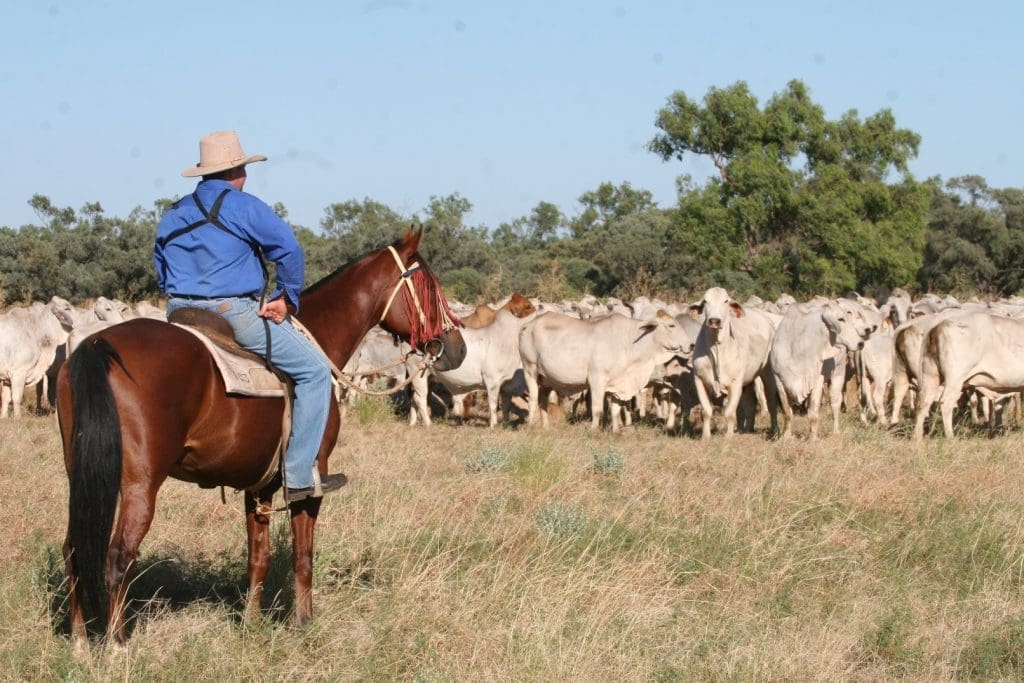Latest listings on Jobs Central recruitment page:
- General Manager, Sales & Operations – via Rimfire Resources
- General Manager, Policy & Advocacy – via Agricultural Appointments
- Property Manager, NSW Central Tablelands – via Agricultural Appts
- Commodity Manager, Regional Vic. – via Rimfire Resources
- Development Officer, Northam WA – DPI RD WA
- Queensland Cattle Buyer – North Australian Cattle Company
- Domestic / Gardener / Cook , Wylarah – AA Co
- Farm / Stud Hand – Carinya Brahmans
- WHS & Training Coordinator (Feedlots & Farms) – Mort & Co
- Northern Development Officer – Angus Australia
- Customer Engagement – Murrunbidgee Irrigation
- Station Manager, Redford – Australian Country Choice
Click here to access these and other exciting meat and livestock supply chain jobs currently listed on Jobs Central.

ON 12 February, the Fair Work Commission made determinations that added new rules around annualised wage arrangements.
There are a number of awards these annualised arrangements are already included in, however new additional ones that are industry-specific are the:
- Pastoral Award 2010
- Clerks Private Sector Award 2010
Both have significance for businesses along the red meat and livestock supply chain.
Who do the new rules affect?
The new rules affect full-time employees who are paid an annual wage under the listed awards and will commence from the first full pay period on or after 1 March 2020.
What is an annualised wage?
An annualised wage/salary is an arrangement whereby the employee is paid a pre-determined “all-inclusive” annualised rate of pay. The general intention of such an arrangement is to compensate the employee for all award monetary entitlements, such as minimum wages, overtime rates, penalty rates, allowances and loadings. Under the annualised wage arrangement, employees are paid the same amount each pay period.
What do the new rules mean, in practice?
In a nut-shell, the new rules mean that if you pay an employee with an annual salary, you will have additional obligations regarding record keeping, auditing pay entitlements and notifying or agreeing the employee’s salary.
An annualised wage clause must not allow an employee to receive less pay over the course of a year than they would have received had they been paid in accordance with the modern award in each pay period and there needs to be a mechanism to ensure this does not happen. The mechanism will most likely be an annual audit.
Annualised wage instead of award provisions
In essence, an employer and a full-time employee may enter into a written agreement for the employee to be paid an annualised wage in satisfaction of:
- Minimum weekly wages
- Allowances
- Overtime and penalty rates
- Weekend and other penalty rates
- Annual leave loading
A written agreement for an annualised wage agreement should be entered into and the agreement must specify:
- The annualised wage that is payable
- Which of the provisions of this award will be satisfied by payment of the annualised wage
- The method by which the annualised wage has been calculated, including specification of each separate component of the annualised wage and any overtime or penalty assumptions used in the calculation
- The outer limit number of ordinary hours which would attract the payment of a penalty rate under the award
- That the agreement can be terminated by any party by giving 12 months notice.
Implications for Employers
The new clauses raise a number of implications for employers and overall will create more onus to ensure that employees are paid in accordance with their award.
Pay for work done in excess of outer limits:
If in a pay period or roster cycle an employee works any hours in excess of either of the outer limit amounts specified, such hours will not be covered by the annual wage and must separately be paid for in accordance with the applicable provisions of the new award.
Annual Audit:
The new clauses require an employer to conduct an audit of the salary:
- Every 12 months from the commencement of the annualised salary; or
- At termination of employment
And compare it to the amount of the annualised wage actually paid to the employee. If the amount payable is more than the annualised salary, you must pay the difference to your employee within 14 days.
Record Keeping:
The employer must keep a record of the starting and finishing times of work, and any unpaid breaks taken, of each employee subject to an annualised wage arrangement in order to compare actual entitlements and the annualised wage paid. This record must be signed by the employee each pay period or roster cycle.
New Steps
To ensure they are meeting these requirements employers should:
- Confirm if any award captures your employees
- Consider those employees who work highly variable hours and/or significant ordinary hours of work which attract a penalty rate should be on the annualised salary; or
- Pay them entitlements each pay period if an award covers them
Are annualised salaries the only option to paying an all-encompassing salary?
The answer here is no. There are other options available and these can be a combination of a Common Law Contract and an Individual Flexibility Agreement or pay according to the award and any relevant allowances and loadings.
Employers wanting to speak to someone around whether these obligations apply to their employees can contact Kathryne Wall, Rimfire’s specialist HR Consultant on 0417 572 906 or [email protected]
About Rimfire HR Services
Rimfire is a leader in recruitment and HR solutions in agribusiness across Australia and New Zealand. Led by Kathryne Wall, Rimfire now has a dedicated in-house consulting division to support agribusiness in managing their people and ensuring they are compliant when it comes to the relevant workplace legislation and employee relations system.
Kathryne has more than 15 years of experience in both the internal and external consulting space to a range of clients from ASX top 100 to grass roots Agricultural businesses.

HAVE YOUR SAY